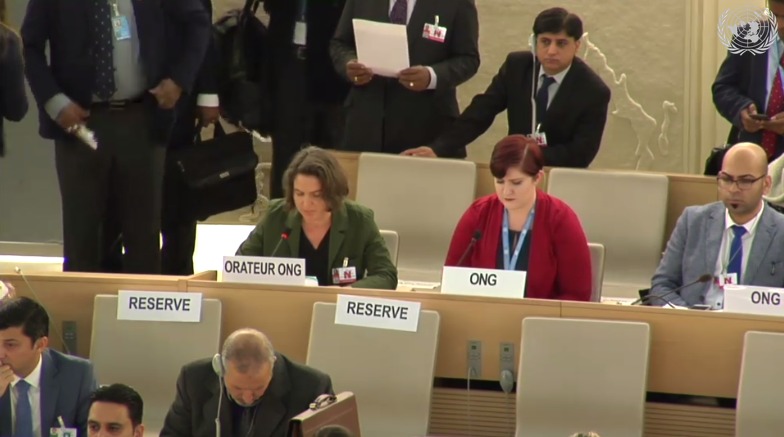On Wednesday 14 March 2018, ADHRB’s legal fellow Bridget Quitter delivered an oral intervention on behalf of ADHRB during the Item 4 General Debate. In her intervention, Quitter addressed the horrendous conditions inside Bahrain’s Jau prison and Bahraini authorities’ denial of necessary medical care for prisoners, in particular detained human rights defenders and political activists. Click here for a PDF of her intervention.
Mr. President,
IDO and ADHRB wish to bring to the Council’s attention the conditions in Jau Prison in Bahrain and the ill treatment and denial of healthcare to political prisoners. These men were targeted for their peaceful political activities and are serving lengthy sentences, including life in prison, where they are subjected to further rights violations.
The conditions in Jau are deplorable and violate international standards for detention. The prison is overcrowded – prisoners have stated that there is insufficient room even to pray. Prisoners report physical beatings perpetrated by guards and the use of extended solitary confinement as punishment. Prisoners on death row, like Ahmed AlMalali and Moosa Abdulla Jaafar are housed in extremely cramped and unhygienic conditions, confined to beds that are only wide enough for one prisoner to sleep on his side.
In addition, the administration provides insufficient, poor quality water – reportedly giving inmates drinking water from emptied bottles of bleach. The administration has also placed restrictions on family calls and visits and installed a glass barrier in the visitation room, preventing physical contact.
In addition to these restrictions, the prison has failed to provide necessary healthcare to prisoners, particularly high-profile inmates. Human Rights Defenders Abdulhadi al-Khawaja and Abduljalil al-Singace, and political leaders Hassan Mushaima and Abdulwahab Hussain, have all been denied necessary medical care during detention in Jau.
We therefore call upon the Council to address these violations, and call on Bahrain to release all political prisoners, and to uphold its international human rights obligations.
Thank you.





